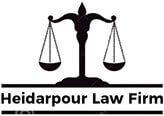BANKRUPTCY

You should be aware of a few differences between Chapters 7, 11, and 13. Bankruptcy is a process in which individuals or businesses declare themselves “no longer able” to make payments on outstanding debts that they owe. The process of bankruptcy prohibits collection agencies and creditors from contacting you regarding your debts, and this process also releases you from certain types of debts.
The difference between filing for Chapter 7 bankruptcy and filing for Chapter 13 bankruptcy are your income level, your current debts, and your financial goals and assets. Individuals who fall below a certain level of income can file for Chapter 7 bankruptcy, while those who don’t can instead file for Chapter 13 bankruptcy.
Chapter 7 bankruptcy is designed to help those who make little to no money at all, to pay back their debts. Chapter 13 bankruptcy is designed for debtors who are able to pay back a portion of their debts, through a repayment plan. That means that if you file for Chapter 7 bankruptcy, you will have your assets liquidated, if any. While if you file for Chapter 13 bankruptcy, you retain and restructure your assets to pay off some of your debt.
Call HLF at 1-202-234-2727 or fill out HLF’s FREE CONSULTATION form.
